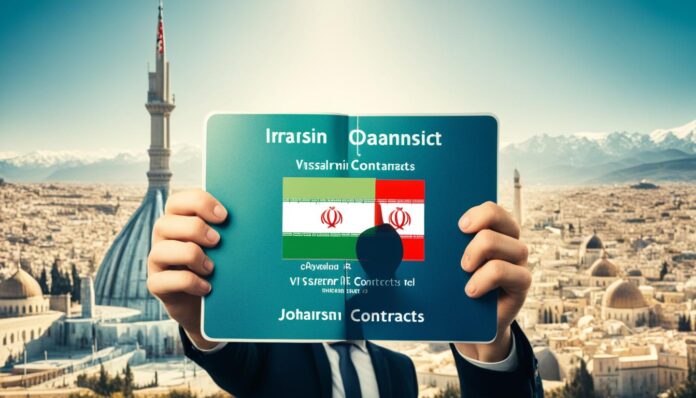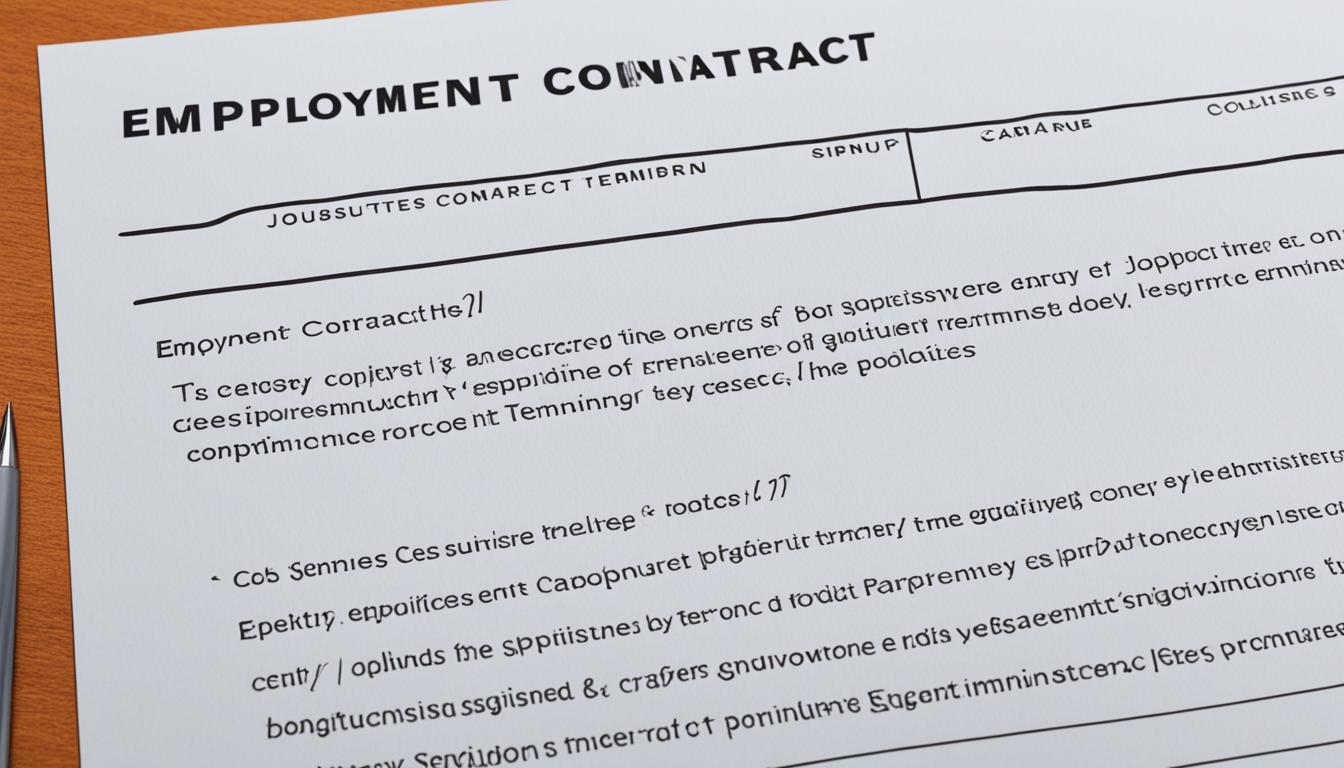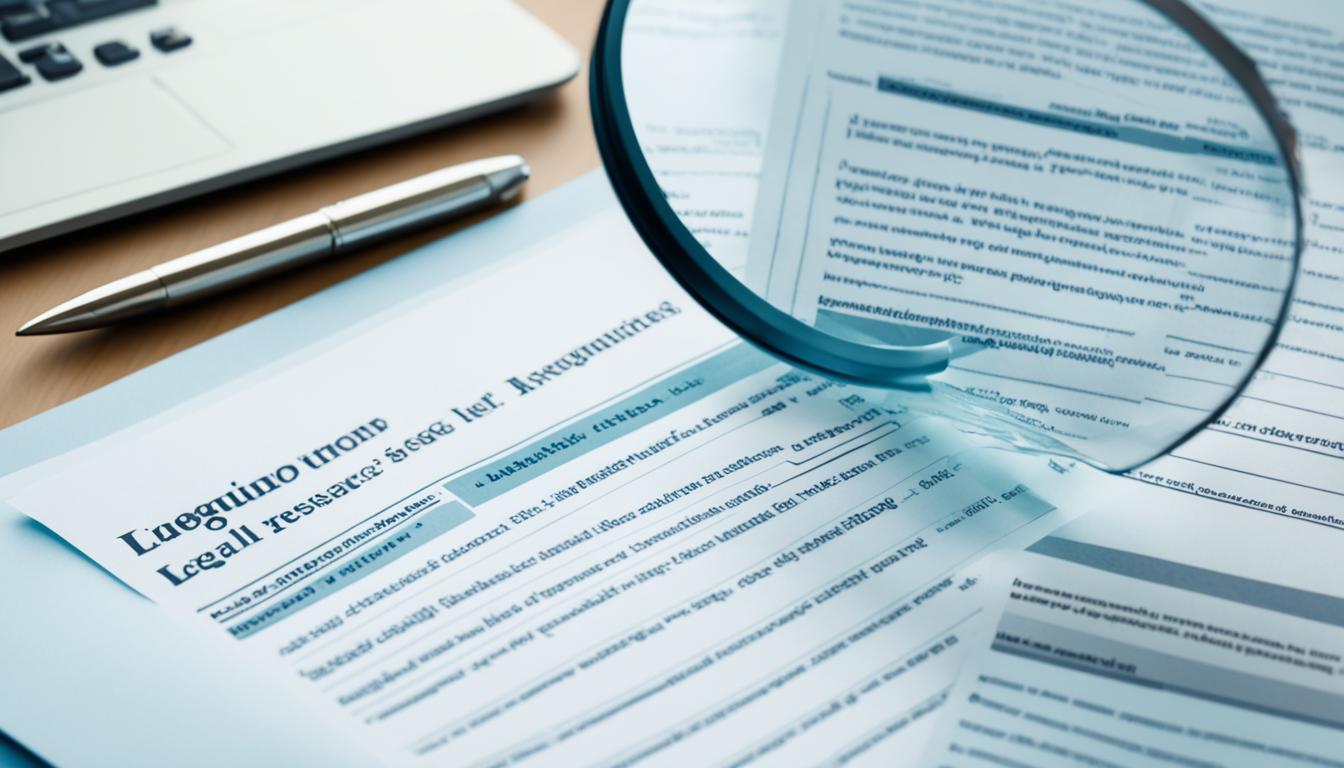
Welcome to our guide on working in Europe for Iranian citizens. This guide helps both Iranian expats and employers. It’s important to understand the work rules for Iranians in Europe. This knowledge is key for a smooth work experience.
History of Iranian Labor Law
The history of Iranian labor law started with the country’s early laws. In 1906, Iran’s first constitution gave people basic rights, including labor rights. However, the real boost came in 1922 with the Civic Servants Employment Act. This law protected workers and civil servants from unfair treatment and bad work conditions.
Iran kept making its labor laws better over time. It introduced many laws to set rules for how employers and employees should act. These laws aimed to protect workers’ rights and solve issues like bad work conditions, low pay, and how to settle problems.
After the Islamic revolution in 1979, Iran’s labor laws changed to fit Islamic values. The Islamic Workers Council became key in standing up for workers. It made sure workers had a say in making important decisions. Laws changed a lot during this time to match Islamic ideas.
But, over the years, the labor laws had to change to keep up with the private sector’s needs. The government worked to make Iran a better place for business and also protect workers. These changes show how Iran is working to make everyone happy, workers and bosses alike.
In the end, Iranian labor laws show us how the country grows. It shows that laws always change to meet new challenges and help the economy get better.
Labor Law in Iran
The labor law in Iran sets rules and protections for workers and employers. It makes sure employees are treated fairly and can’t be fired without good reasons. We will look at the main points of this law.
Employee Protections
In Iran, employers must treat their workers fairly. They should have good working conditions and get a fair pay. There should be no unfair treatment because of gender, religion, race, or ethnicity.
Minimum Age for Workers
Workers must be at least 15 years old in Iran. Some areas have their own rules. Employers must follow these rules to keep young people safe.
Social Security
Social security is important for all employees in Iran. It covers things like healthcare, disability help, and pensions. This system supports workers when they need it the most.
Labor Disputes
Issues at work go to a special council. This council helps solve problems between workers and bosses fairly. The labor law guides how to deal with such issues.
Employee Rights
Worker’s rights are clearly stated in Iran’s labor law. These rights protect their pay, working hours, and time off. They also make sure workers are treated fairly when it comes to keeping their jobs.
| Key Points | Details |
|---|---|
| Employee Protections | Regulations ensure fair treatment, reasonable conditions, and non-discrimination in the workplace. |
| Minimum Age for Workers | The minimum age for workers is 15 years old, with certain exemptions for specific sectors. |
| Social Security | All employees are required to contribute to the social security system, which provides various benefits. |
| Labor Disputes | Disputes are resolved through a specialized labor council, ensuring fair outcomes for all parties. |
| Employee Rights | Employees are entitled to fair compensation, reasonable working hours, paid leave, and protection against unfair dismissal. |
Provisions of Employment Contract
The employment contract is key to making the work relationship fair and clear in Iran. It is a legal paper that shows the work conditions such as time worked, days off, and how to end the job. This document helps both the boss and the worker know their rights and duties. It’s how they protect each other by following what labor law says.
Terms and Conditions
This contract details what the job is, what the person must do, how much they get paid, and what benefits they have. Both the employer and employee talk about these and agree before they sign anything. This way, everyone is on the same page and less likely to argue later on.
Working Hours
The contract also says how many hours a worker must work each day and each week. It includes rules for working extra, such as getting paid more and how much extra time is okay. By setting work hours, the contract makes sure everyone is following the labor laws and has time for their personal life.
Leaves
This paper talks about the time off a worker can have, like vacation, sick days, and when a parent needs to stay home with a new baby. It lays out how long someone can be gone and when they can take these days. They also say how to ask for time off and what documents are needed. These rules help make everything fair and keep workers healthy and happy.
Dismissal
If a worker needs to leave their job, the contract explains why and how this can happen. Employers must show a really good reason to let someone go. Workers have a chance to explain their side before anything is final. It’s about being fair to everyone when it’s time to part ways.

Due Diligence for EU Operators Dealing with Iran
EU operators must do their homework when dealing with Iran. They need to check if they’re following the rules of restrictive measures and sanctions. Doing so will protect them from legal and bad reputation risks. It also shows they are running their operations responsibly.
They should start by looking up the EU’s ongoing restrictions. They can find this on the European Commission’s website and other online sources. It’s important to keep checking these sites to stay compliant with the law.
EU operators can also get help from the Chambers of Commerce in EU countries. These groups are good at offering advice and support for doing checks the right way. They know a lot about the legal requirements and how to manage risks in Iran.
Using both online info and expert advice, EU operators can improve their due diligence. This way, they lower the chances of facing risks. Following the rules and guidelines helps them do business correctly. It also makes international trade safe and trustworthy.
Highlighted Quotes:
“Due diligence is crucial for EU operators working with Iran. It helps them understand and manage risks. It also makes sure they stick to the rules and sanctions.”
“Chambers of Commerce offer great help. They give EU operators what they need to check well.”
Best practices for conducting due diligence checks:
- Research official information about Iranian business partners
- Consult publicly available sources of information
- Utilize private databases that provide access to sanctions lists
- Seek assistance from relevant authorities and organizations
By careful following these steps, EU operators will stay compliant. They can avoid risks and build good business relationships with their Iranian partners.
Key Considerations for Due Diligence Checks
| Considerations | Description |
|---|---|
| Type of Business | Assess the nature of the business and its potential exposure to relevant restrictive measures and sanctions |
| Reputation of Business Partner | Evaluate the reputation and credibility of the Iranian business partner for any potential risks |
| Jurisdiction | Consider the legal and regulatory environment in which the business operates in Iran |
| Industry/Sector-specific Risks | Identify any risks associated with the specific industry or sector in which the business operates |
Steps for Conducting Due Diligence Checks
EU operators need to do due diligence checks when working with Iran. These steps are important to follow. They help lower risks and keep businesses safe.
1. Research Official Information
First, look up your Iranian business partner’s official info. This includes their registration and any licenses they have. Finding this info helps make sure they’re legit and open in doing business with you.
2. Consult Publicly Available Sources
Next, check public sources for more info. See if there’s been any bad news or sanctions against them. Use government sites, news, and international databases for details to help in your checks.
3. Utilize Private Databases
Also, use private databases for more checks. These places have lists and data from many sources. They can show if your partner has had any compliance issues. Be on the lookout for any sanctions signs.
4. Seek Assistance from Relevant Authorities and Organizations
Sometimes, you might need help. Don’t hesitate to reach out to experts. Chambers of Commerce, legal advisors, and trade groups are there to guide you. They can make your due diligence process smoother.
Remember, doing these checks is key for EU rules. They help keep businesses safe from risks. Plus, it makes sure everyone plays fair and follows the law when working with Iran.

Always do thorough due diligence. These steps are crucial. They keep EU businesspeople following the rules. Plus, it helps in building honest relationships with Iranian partners.
Risk Assessment in Due Diligence Checks
A risk assessment is key in due diligence for EU companies. When working with Iran, checking for risks is crucial. This process helps spot issues early, needing more attention.
Here are things to think about in risk assessment:
- The nature of the business: Find out what kinds of business it does and in what sector. This uncovers any hidden risks.
- The reputation of the business partner: It’s important to check the reputation of your Iranian partner. This makes sure they meet high ethical and legal standards.
- The jurisdiction in which the business operates: Knowing the rules in Iran and the EU helps identify extra risks. This is crucial for compliance.
- Any potential risks associated with the industry or sector: Look for specific risks linked to the industry. These could make following EU measures harder.
By thoroughly assessing risks, EU companies can choose wisely. They can avoid problems by spotting and dealing with risks early. This leads to better compliance with EU laws and reduces legal or image troubles.
| Factors | Importance |
|---|---|
| The nature of the business | High |
| The reputation of the business partner | Medium |
| The jurisdiction in which the business operates | High |
| Any potential risks associated with the industry or sector | Medium |
Conclusion
Understanding the rules for Iranian citizens working in Europe is tough. Both Iranian and European labor laws must be followed, which can be complicated. Because Iranian labor laws are still changing and might not match global norms, employers must be very careful. They should double-check everything and talk to legal professionals.
Following the work laws in Iran and Europe needs thoughtful planning. It’s hard to find a good way for both to make sense together. This is where legal advice is really important. By doing thorough checks, employers can avoid breaking the rules. This helps them deal with the complex labor laws of both areas well.
For Iranians working in Europe and their employers, staying updated on the laws is crucial. Getting advice from legal experts and staying informed on changes can make everything run smoothly. It lets everyone follow the law the right way. This keeps workers safe and happy, and it builds good relationships at work.
